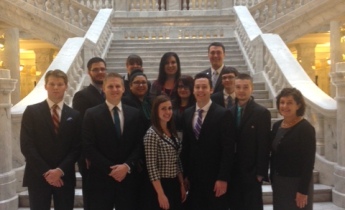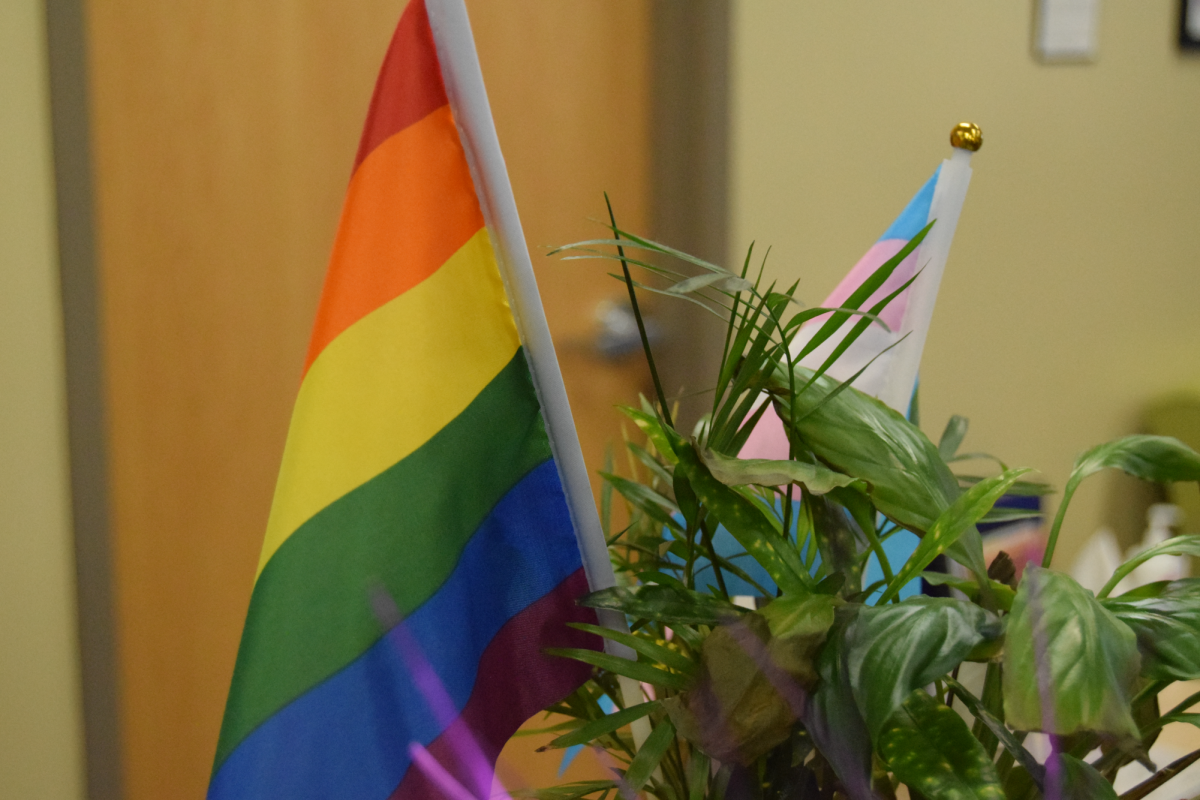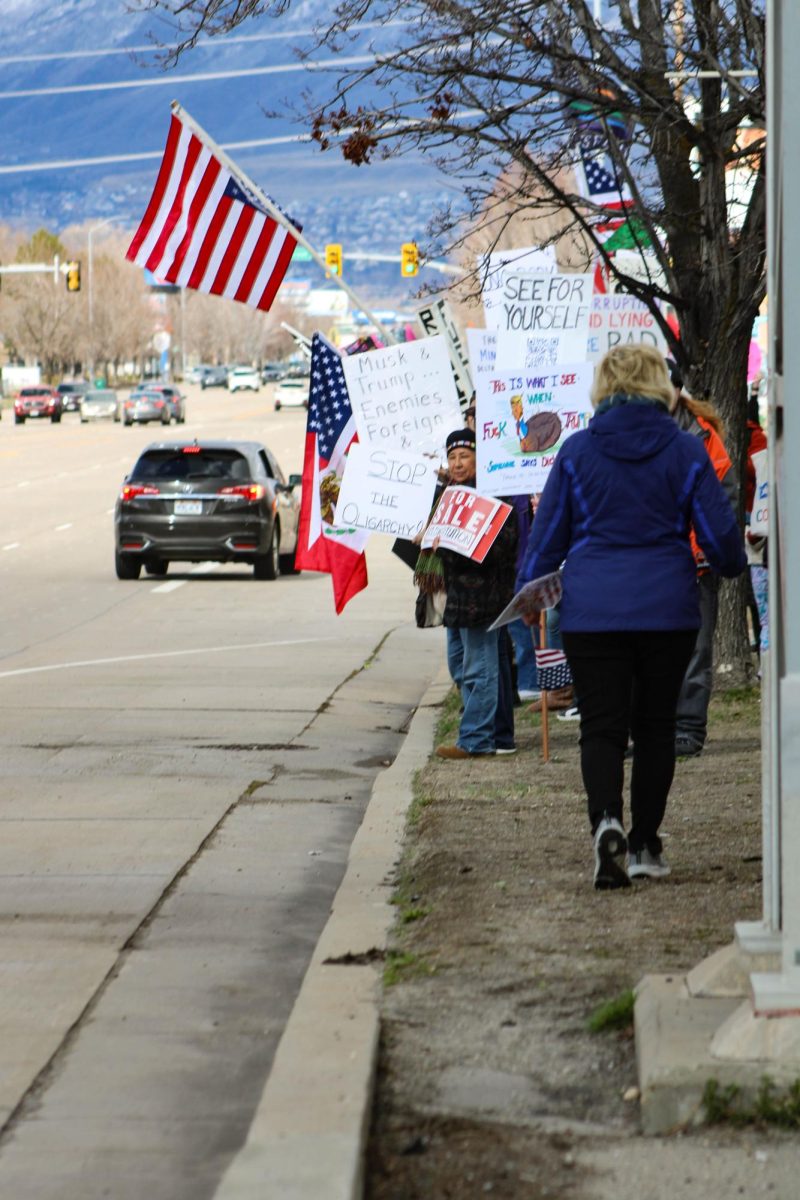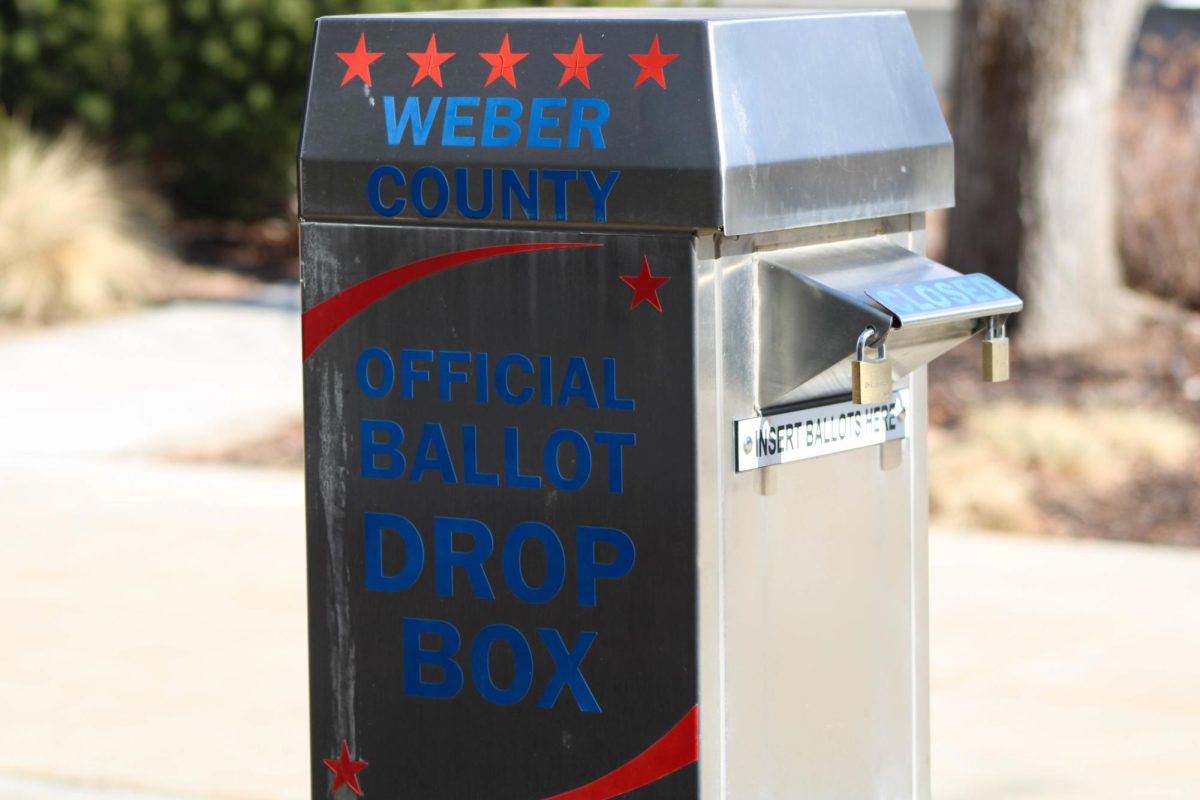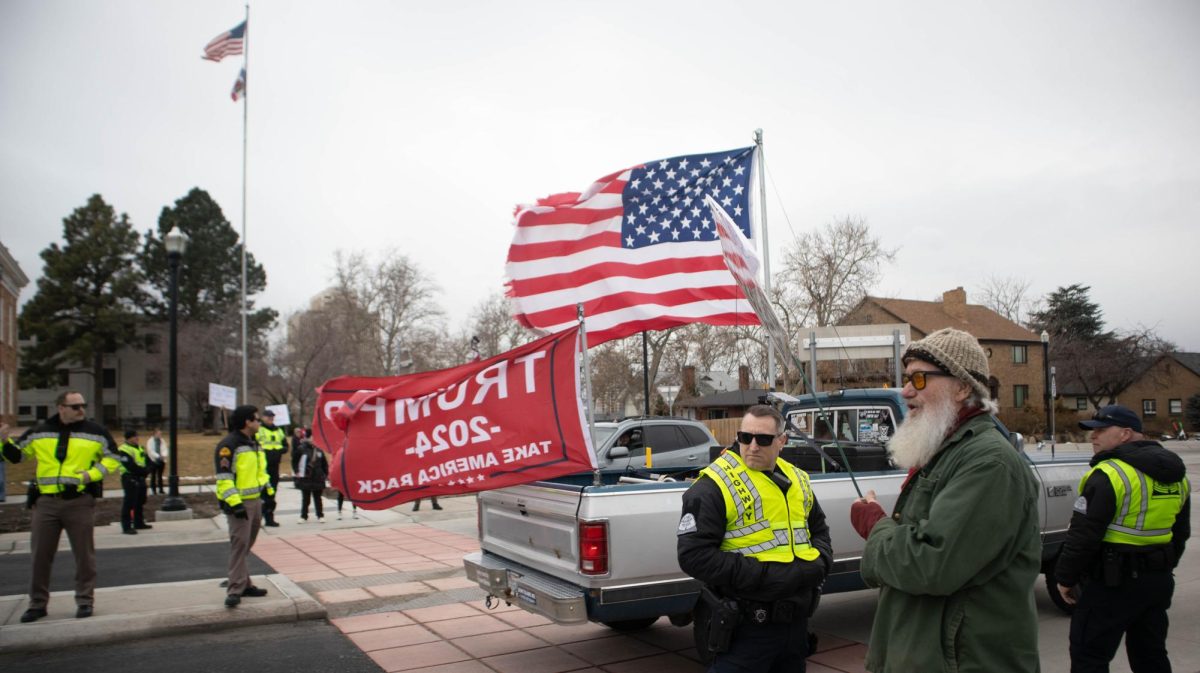SALT LAKE CITY — When Carol McNamara first came to Weber State University, the Wildcats only had three interns working during the state Legislative session. She says she was appalled that there were only three spots for a school of 26,000 students.
In her role as director of the Olene S. Walker Institute of Politics and Public Service, she helped raise the number to 12 for the 2015 session, boasting the highest number Weber has held to date. Eleven are serving with representatives and one will be working with a lobbyist. The students receive college credit.
“The biggest ones were BYU, University of Utah or Utah State. Weber State was left out in the cold,” said Rep. Curtis Oda, R-Clearfield.
McNamara said she learned how to lobby for the Walker Institute and on behalf of WSU, and she started working on getting WSU more intern slots. She said she worked with Brad Mortensen, WSU vice president for university advancement, and President Chuck Wight to increase openings for Weber State students.
McNamara said the Legislative Research Office that manages the intern program at the Capitol kept telling WSU leaders they needed to strengthen support for students. First, the university needed an institute, which led to the creation of the Walker Institute.
Then it needed to create a legislative preparation class.
The first year it was a small class but WSU has now paired with the other universities in the state to create a preparation class. There, interns get to know each other and learn how Utah politics works.McNamara said educators learned it was easier for lawmakers to talk to a combined group of students. “Plus I think there’s real value in having them all down at Capitol. They get know each other and learn from each other,” she said.The students spend all day in a class at the Capitol, where speakers teach them about the legislative process and the role of interns. Gov. Gary Herbert visited the class earlier this semester.“I’ve heard it compared to drinking out of a fire hydrant,” said Marty Holmes, a WSU student majoring in criminal justice who is interning for Oda. Holmes said he plans to work in government in law enforcement and this gives him an a chance to be apart of something bigger than himself.
The Utah State Legislature works part time throughout the year, but meets full time for a 45-day session from January through March. Lawmakers do not have staff, so interns help them keep their schedule, make appointments, research issues and serve constituents.
“I don’t even know of another program that is just like this one (in the United States). Our interns serve as staff during the session,” McNamara said.
Oda said the primary intern responsibility is keeping House and Senate members on schedule. They make sure legislators get to committee meetings and also track bills.
McNamara said students gain from the experience in multiple ways. She says they learn how laws are made and how bills are killed. They also learn how the media and the public all play a role in the political process.
“They have to be good,” she said. “They represent Weber State and the Walker Institute.”
